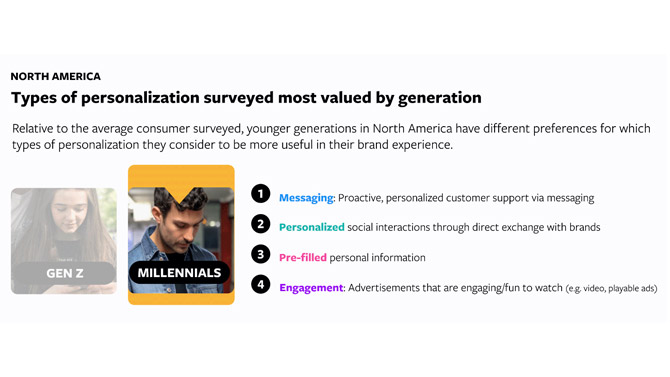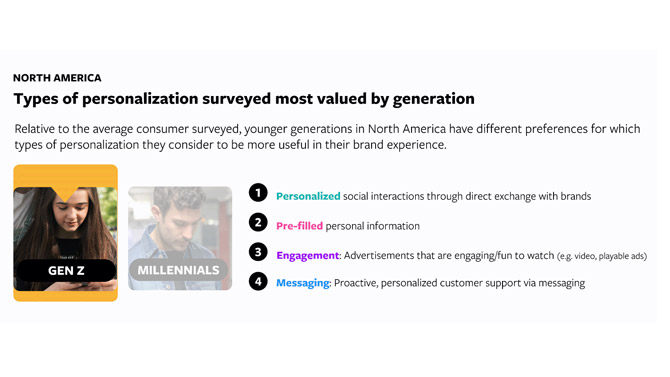
As younger generations begin to age and amass more spending power, it’s the responsibility of brands and retailers to take steps now to ensure a connection with them in the future. You may have an ace social media strategy at the moment, but how long will it last?
While platforms such as Instagram certainly appeal to an audience of all ages, different segments use it differently, some connecting with friends through direct messaging, others creating and viewing more content through Stories or IGTV, and still others just barely using the app, visiting to take a quick scroll through their feed and double tap an image or two. And so therein lies the necessity for a nuanced game plan in order to best connect with your shoppers, no matter what generation they are.
According to Accenture, millennials and Gen Zers are projected to account for 30% of retail sales next year. In a study commissioned by Facebook, retailers can glean a little more information on how to better connect with them on social. Of course, some of the study centers on the use of Facebook (and its property Instagram), as opposed to other platforms, but I think you can apply this knowledge loosely elsewhere. Visit Facebook for Business for the whole study, but here are some of the highlights.

Transparency matters. According to Facebook’s analysis, a younger generation of shoppers is more likely to be open to brands that take their values into account and deliver personalized, curated experiences online. Generation Z in particular is said to be drawn to brands that not only share the same values, but take extra steps to contribute to society, too. Facebook suggests that brands be open about what they stand for—according to an Accenture study, Gen Zers are more likely than the average consumer to recommend a brand to others if it shares their same values, and they’re up to 1.5 times more likely to share that encouragement on social media.


Communication is important. While both Gen Z and millennials appreciate customized brand experiences, each prefers to receive them a bit differently—and younger generations are more guarded of their personal data. According to the information presented by Facebook, millennials rank proactive, personalized customer support via messaging as their most valued type of personalization, while Gen Zers prefer personalized social interactions through a direct exchange with brands. Millennials are said to be most okay with sharing their financial information (i.e., a stored credit card on a website) to support a curated experience, while that method ranked last for Gen Zers, who instead prefer to share data pertaining to their social media activity (and for what it’s worth, the data millennials appear least likely to want to share is their search history).
So what does this mean for your holiday strategy if you’re looking to target younger audiences? You’re probably doing quite a bit of this already, but here are a few things to keep in mind:
1. If your brand stands for something, shout it out loud. Pay attention to the differences between being informative and trying to grab at sales—customers can tell. Just be authentic, tell a story about why sustainably made goods (as an example) are so important to you. Whatever the reason you value what you value, share it.
2. Engage. This requires more than a double tap and a “heart” on the comments. Respond to all questions and comments in as timely a manner as you can. If you’re tagged in a photo, comment on it and share it, either in your Stories or on your feed (with permission from the original poster), if you feel so compelled.
3. Remember that behind every brand, there’s a human—many humans in some cases! From the one-person shows running everything to the big brands that hire someone else to run their social channels, both are human operated, just on different scales. Don’t hide behind a brand name, rather, be awesome with it. Now that social media offers the capability to make many in-app purchases, those forged connections could be even more fruitful.
This release by Facebook doesn’t come as particularly surprising news, but it does serve as a reminder to do a quick social media checkup as we enter the holiday shopping season and take a look at where you can improve as we move into 2020.
(Top image via: Facebook)
Follow JCK on Instagram: @jckmagazineFollow JCK on Twitter: @jckmagazine
Follow JCK on Facebook: @jckmagazine